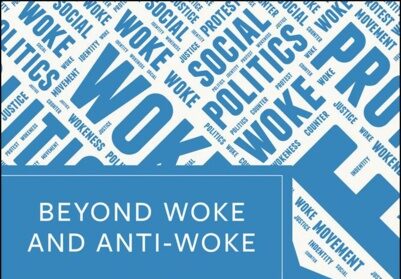
Beyond Woke and Anti-Woke
Edmund King and Thomas Prosser have written a (forthcoming) book exploring the rise of social justice ideology. In this blog, Edmund talks about the origins of their book.
Even as the Northern Hemisphere Summer of 2020 recedes in time, the sense of what it was like remains vivid in academic memory. It was a time of shared fears, synchronised certainties, and newly galvanised moral commitments. Everything seemed to be suddenly running along the same circuits. Academic departments began issuing statements, one after another, about their subjects’ complicity in historic injustices. Statues in cities across the world were torn down. Universities got new names. One certainly couldn’t doubt the sincerity of those involved, but what was most striking was the speed and synchronicity of it. Even though we were sympathetic to the sentiments and ideals behind the new activism, some of us were, nevertheless, struck by how quickly and dramatically they were changing discussions about a whole raft of norms and practices within universities and other institutions, from teaching to recruitment and basic curriculum. We accordingly began looking for explanations as to what was going on.
Thomas Prosser and I both independently found ourselves writing and thinking about these questions. After we met on Substack in early 2023, we decided to combine our efforts by writing a book together. The kernel of those early discussions eventually grew into Beyond Woke and Anti-Woke: Explaining the Rise of Social Justice Ideology, due to be published with Bristol University Press in February 2026.
Thomas and I were eager to explain where the new ideological formations that arose in the institutions in the 2010s (and which took such vivid form from 2020 onwards) had come from, and why they had so swiftly taken root in both the institutions and the corporate sector.
In Beyond Woke and Anti-Woke, we examine the phenomenon in ten chapters:
Introduction: Beyond Woke and Anti-woke
1. What Is Social Justice Ideology?
2. Who Supports Social Justice Ideology? (with Travis Proulx, Elena Magazin and Geoff Haddock)
3. What Are the Functions of Social Justice Ideology?
4. Was It Economic Pressure?
5. Was It the Sociocultural Sectors?
6. Was It Social Media?
7. Why Did Corporations Embrace Social Justice Ideology?
8. Understanding the Relationship with Liberal Democracy
9. What Explains the Rise of Social Justice Ideology?
Above all, we wanted to bring some data to a debate that seems to have run for so long on vibes and anecdotes. The book builds on Thomas’s quantitative data and survey skills, and I brought to it my own background as a literary critic, as well as my long-standing interest in the history of intellectuals and ‘knowledge work.’ At the same time, we wanted to acknowledge the failures and limitations of the pure ‘anti-woke’ position, which (to us) appeared to share many of the same problems it identified in the social justice movement and whose understanding of social justice ideology appeared to us to be (at best) imperfect. Many of the partisans of ‘anti-woke’ now seem to be drifting ever further away from the liberal principles they once claimed to be defending. In our book, we wanted to look at the phenomenon as a whole, from as objective a position as we could, and with more rigour than the spate of trade press ‘anti-woke’ books that began emerging in the early 2020s.
Beyond Woke and Anti-Woke provides new data about the belief systems of social justice activists and who they tend to be. We examine how social justice framing changes understandings of institutional mission and professional work in places where it becomes dominant. But at the same time, we acknowledge its attractions to sociocultural workers and professionals who find their current workplaces to be socially exclusive spaces, bereft of meaning and purpose, and see in social justice ideology a way of changing things for the better.
Much current academic work is written from a social justice perspective, but rather less of it to date reflects critically on social justice as an ideology. We hope that Beyond Woke and Anti-Woke will encourage more research into an area that many of us have first hand experience within our institutions, but which has received very little academic scrutiny until now.
Edmund and Thomas Prosser are AFAF members. Thomas convenes the Cardiff Academic Freedom Association.

